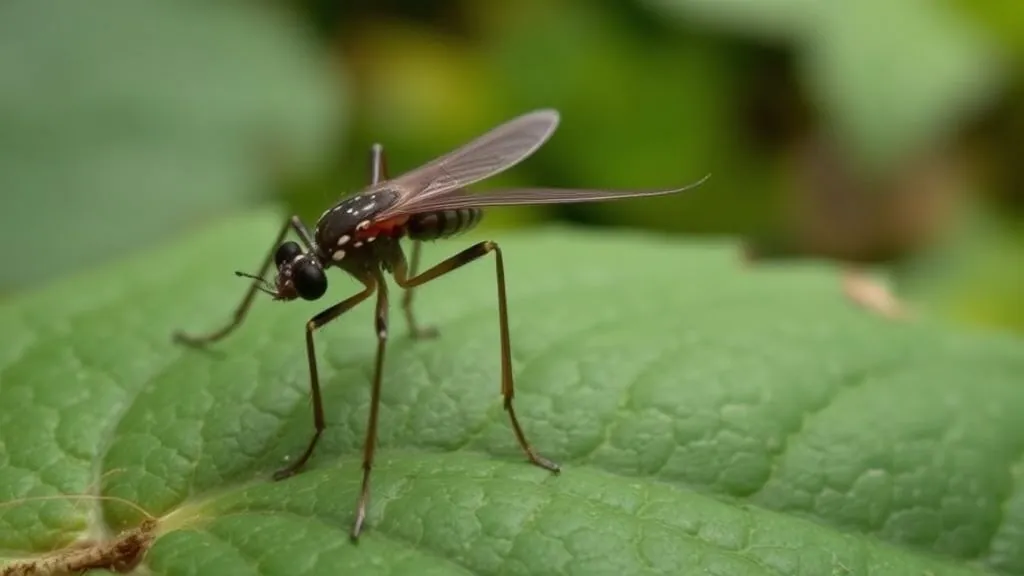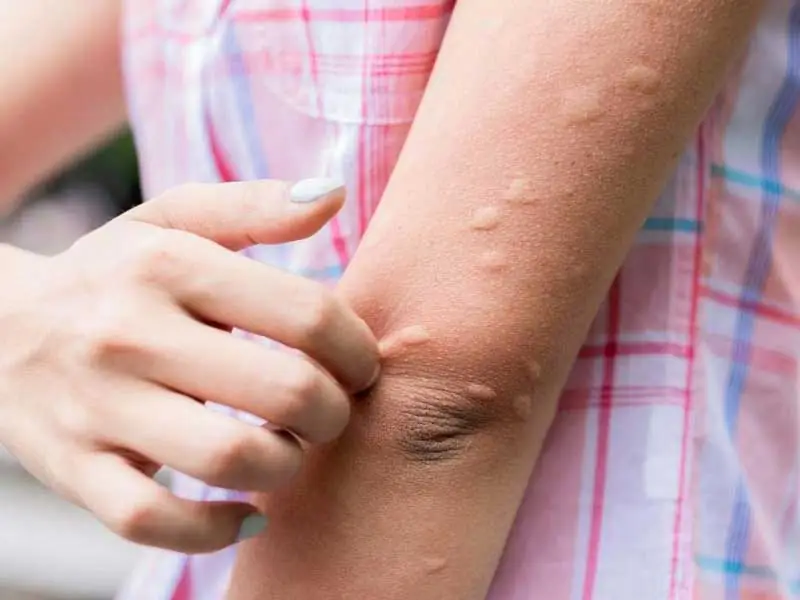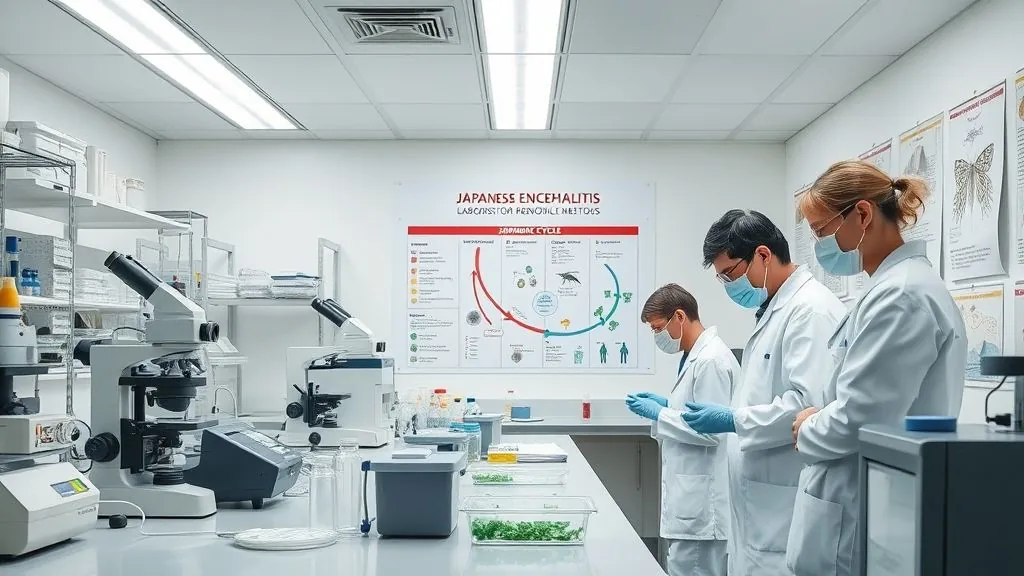If you’re asking what are the symptoms of Japanese encephalitis, understanding them is crucial for early detection and timely treatment. Japanese encephalitis (JE) is a viral infection transmitted by mosquitoes, which predominantly affects the brain, leading to inflammation known as encephalitis. Although most infected individuals show mild or no symptoms, a small number develop severe neurological complications that can be life-threatening or cause long-term disabilities.
In this article, we’ll explore the full spectrum of symptoms associated with Japanese encephalitis, explain the stages of the illness, and guide you on when to seek urgent medical help. Whether you are traveling to endemic areas or simply want to be informed, this guide will give you the knowledge you need.
What Is Japanese Encephalitis?

Japanese encephalitis is caused by the Japanese encephalitis virus (JEV), which is transmitted through the bite of infected Culex mosquitoes primarily found in rural parts of Asia and the Western Pacific. The disease mainly affects children in endemic regions but can impact anyone exposed.
What Are the Symptoms of Japanese Encephalitis?
Most people infected with JEV do not develop any symptoms or have only mild flu-like effects. However, about 1 in 250 infections progress to severe illness involving brain inflammation.
Early or Mild Symptoms
- Fever: Sudden high fever is often the first sign, sometimes mistaken for flu or cold.
- Headache: Persistent and severe headaches often accompany the fever.
- Nausea and Vomiting: Digestive symptoms such as upset stomach, vomiting, and abdominal pain may occur.
- Fatigue and Weakness: General tiredness and weakness can make daily activities difficult.
- Sensitivity to Light (Photophobia): Some individuals become sensitive to bright light.
These mild symptoms may last a few days and disappear without complications in most cases.
Severe Symptoms When the Brain Is Affected

If the infection spreads to the brain, signs of encephalitis develop, often within 5 to 15 days after the mosquito bite:
- High Fever and Chills: A rapid increase in body temperature with shivering.
- Severe Headache: Intense, persistent headache that worsens over time.
- Stiff Neck: Difficulty in bending the neck forward or backward, a classic sign of brain inflammation.
- Confusion and Disorientation: Problems with memory, difficulty understanding surroundings, and incoherent speech.
- Seizures: Sudden, uncontrolled convulsions affecting part or all of the body; more common in children.
- Paralysis or Weakness: Loss of movement or numbness, usually on one side of the body.
- Coma: Loss of consciousness, indicating severe brain dysfunction.
- Loss of Coordination: Trouble walking, tremors, or abnormal body movements.
- Behavioral Changes: Unusual irritability, agitation, or lethargy.
Stages of Japanese Encephalitis Symptoms
Understanding the progression can help identify critical phases:
1. Prodromal Stage (1–3 days)
- Abrupt onset of high fever, headache, vomiting, malaise, and muscle aches.
- Symptoms resemble common viral infections and can be easily missed.
2. Acute Encephalitic Stage
- Marked by neurological symptoms such as altered mental status, seizures, paralysis, and coma.
- The brain inflammation causes swelling, leading to potentially life-threatening changes.
3. Recovery or Residual Stage
- Patients who survive may recover completely or experience lasting neurological deficits.
- Persistent memory problems, speech difficulties, muscle weakness, epilepsy, or personality changes occur in around 20-30% of survivors.
How to Differentiate Japanese Encephalitis Symptoms from Other Illnesses

Symptoms of Japanese encephalitis overlap with other viral infections and neurological disorders, which can complicate early diagnosis. Clues pointing to JE include:
- Recent travel or residence in JE endemic areas.
- History of mosquito exposure, particularly evening or nighttime bites in rural settings.
- Presence of neurological signs following initial fever and headache.
If you experience neurological symptoms along with fever after mosquito exposure, urgent medical evaluation is vital.
When to Seek Immediate Medical Help
Certain symptoms demand emergency medical attention:
- Severe headache with stiff neck.
- Sudden confusion or loss of consciousness.
- Weakness or paralysis in limbs.
- Seizures or convulsions.
- Difficulty breathing.
Call emergency services or visit the hospital immediately if these occur, especially after travel to high-risk regions.
Diagnosis of Japanese Encephalitis
Diagnosis involves clinical assessment and laboratory tests such as:
- Blood tests detecting antibodies against JEV.
- Cerebrospinal fluid analysis via lumbar puncture to assess brain inflammation.
- Neuroimaging (MRI or CT scan) to evaluate brain swelling.
Early diagnosis is critical for supportive management and prognosis.
Treatment and Management
There is no specific antiviral treatment for Japanese encephalitis. Care focuses on:
- Hospitalization for intensive monitoring.
- Supportive therapy including fluids, pain relief, and controlling seizures.
- Respiratory support if needed.
- Prevention of complications like pneumonia or blood clots.
Vaccination remains the most effective preventive measure against JE.
What Are the Symptoms of Japanese Encephalitis?
- Most infected people have no symptoms or mild flu-like signs.
- Early symptoms include fever, headache, vomiting, and fatigue.
- Severe infection leads to encephalitis, causing confusion, seizures, paralysis, stiff neck, coma, and sometimes death.
- Early detection and medical attention are crucial.
- Vaccination and mosquito bite prevention are key to reducing risk.
Final Advice: Protect Yourself and Your Family
- Use insect repellent and protective clothing when in JE-risk areas.
- Avoid outdoor activities during peak mosquito times (dusk and dawn).
- Sand environmental measures help reduce mosquito breeding sites.
Long-Term Complications and Recovery After Japanese Encephalitis
Understanding what are the symptoms of Japanese encephalitis also includes awareness of the potential long-term effects survivors may face. While many recover fully, a significant number experience neurological and cognitive complications that can impact quality of life for months or even years.
Neurological and Cognitive Aftereffects
- Persistent Muscle Weakness and Paralysis: Damage to nerve cells may cause lasting weakness or partial paralysis similar to polio-like symptoms.
- Speech and Swallowing Difficulties: Motor control issues can affect articulation and swallowing, requiring speech therapy.
- Cognitive Impairments: Memory loss, difficulty concentrating, and slowed mental processing are common among survivors.
- Epilepsy: Post-encephalitic seizures occur in a subset of patients, necessitating ongoing antiepileptic treatment.
- Behavioral and Emotional Changes: Anxiety, depression, irritability, and personality disorders can manifest due to brain injury.
Rehabilitation and Support
Comprehensive rehabilitation including physical therapy, occupational therapy, and cognitive rehabilitation can improve outcomes. Family education and psychological support are vital for adapting to lasting disabilities.
Epidemiology and Risk Factors for Japanese Encephalitis
Knowing what are the symptoms of Japanese encephalitis helps but understanding who is at risk informs prevention and vigilance.
Geographic and Seasonal Patterns
- JE is endemic in rural and agricultural areas of Asia and parts of the Western Pacific, particularly where rice paddies and pig farming are common.
- Transmission peaks during the rainy season when mosquito breeding is prolific.
Populations at Greater Risk
- Children under 15 in endemic regions have the highest incidence of symptomatic disease.
- Travelers to endemic areas without vaccination or mosquito protection are vulnerable.
- People living or working near pig farms or wetlands face greater mosquito exposure.
Preventive Measures Beyond Vaccination
While vaccination is the cornerstone of prevention, other critical steps reduce mosquito bites and virus transmission.
Personal Protective Actions
- Use Insect Repellents: Products containing DEET, picaridin, or IR3535 applied to exposed skin and clothing.
- Wear Protective Clothing: Long sleeves, pants, and hats minimize skin exposure.
- Mosquito Nets: Sleeping under insecticide-treated nets protects against nighttime bites.
- Avoid Peak Mosquito Hours: Dusk and dawn activity should be minimized outdoors.
Environmental and Community Control
- Eliminate Standing Water: Regularly remove stagnant water sources where mosquitoes breed.
- Community Awareness Campaigns: Educate locals on mosquito habits and protective behaviors.
Advances in Diagnostic Techniques for Japanese Encephalitis

Rapid and accurate diagnosis impacts treatment and patient outcomes significantly.
Laboratory Diagnostic Methods
- Serology: Detection of JEV-specific IgM antibodies in blood or cerebrospinal fluid confirms infection.
- PCR Testing: Highly sensitive method to detect viral RNA in samples during early infection.
- Neuroimaging: MRI or CT scans identify characteristic patterns of brain inflammation aiding in differential diagnosis.
Challenges and Innovations
- Limited availability of advanced diagnostics in rural endemic areas delays diagnosis.
- Development of rapid point-of-care tests holds promise for timely identification.
The Role of Public Health Policies in Managing Japanese Encephalitis
Addressing what are the symptoms of Japanese encephalitis is part of the broader public health strategy to reduce disease burden.
Vaccination Programs
- Mass immunization campaigns targeting children and high-risk groups have significantly reduced JE cases in many countries.
- Ongoing surveillance guides vaccine updates and coverage strategies.
Vector Control Initiatives
- Integrated mosquito control programs reduce vector populations efficiently when combined with education.
- Research into novel mosquito control measures, such as genetically modified mosquitoes, is underway.
Psychological Impact of Japanese Encephalitis
Beyond physical symptoms, JE can profoundly affect mental health.
Emotional and Psychological Consequences
- Acute illness and prolonged hospitalization can trigger post-traumatic stress disorder (PTSD).
- Survivors may experience frustration, social isolation, and anxiety related to disability.
Coping Strategies and Support Systems
- Psychological counseling and peer support groups improve coping abilities.
- Family involvement and community rehabilitation programs foster social reintegration.
Frequently Asked Questions (FAQ)

Q: Can Japanese encephalitis be prevented through vaccination?
A: Yes, vaccination is the most effective prevention and is recommended for people at risk in endemic areas.
Q: How long after mosquito exposure do symptoms appear?
A: Symptoms typically develop within 5 to 15 days but can vary.
Q: Is there a cure for Japanese encephalitis?
A: There is no specific antiviral treatment; care is supportive to manage symptoms and complications.
Q: Who should be tested for Japanese encephalitis?
A: Anyone developing neurological symptoms with fever after travel to or residence in endemic areas should be evaluated.
Staying informed about what are the symptoms of Japanese encephalitis prepares you to act promptly, which can save lives and reduce long-term complications.
Conclusion
In summary, recognizing what are the symptoms of Japanese encephalitis is vital for early detection and prompt medical care. While many infections are mild or asymptomatic, severe cases can lead to serious neurological complications. Prevention through vaccination and mosquito bite protection remains the best defense. Staying informed and vigilant can help protect you and your loved ones from this potentially life-threatening disease.